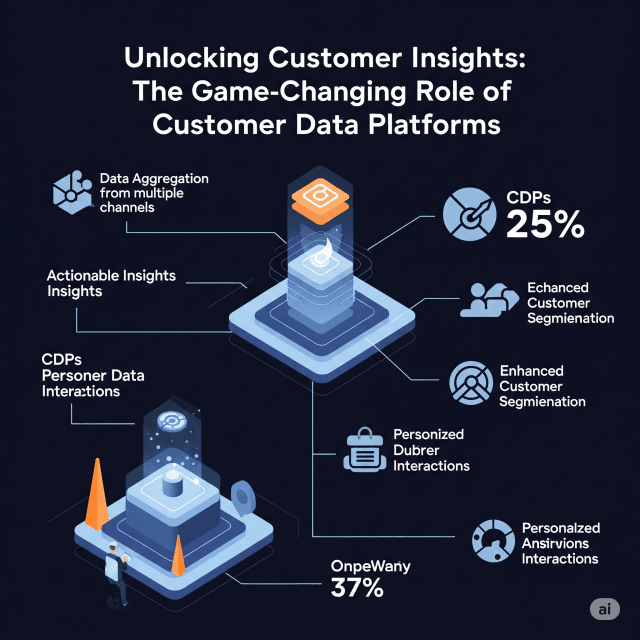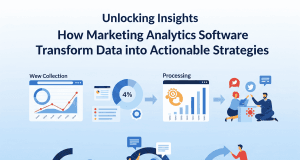In today’s hyper-competitive business landscape, understanding your customers has never been more critical. As consumer behavior shifts and digital transformation accelerates, companies are turning to innovative solutions to unlock valuable customer insights. One of the most effective tools in this pursuit is the Customer Data Platform (CDP). This article explores the transformative role of CDPs in harnessing data to drive customer engagement, personalize experiences, and foster loyalty.
Understanding Customer Data Platforms
A Customer Data Platform is a centralized system that aggregates and organizes customer data from various sources, providing a comprehensive view of each customer. Unlike traditional data management systems, CDPs are designed to consolidate information from both online and offline channels, including websites, social media, email campaigns, and even in-store interactions. This holistic view enables businesses to understand customer preferences, behaviors, and needs more profoundly.
Key Features of Customer Data Platforms
Data Integration: CDPs connect disparate data sources, such as CRM systems, e-commerce platforms, and analytics tools, ensuring that all customer-related information is seamlessly integrated.
Unified Profiles: They create a single customer profile by combining data points from multiple interactions, leading to a more accurate representation of individual customers.
Segmentation and Targeting: CDPs allow businesses to segment their customer base effectively, making it easier to target specific groups with tailored marketing strategies.
Real-Time Analytics: Many CDPs offer real-time data processing, enabling businesses to act quickly on customer insights and adjust strategies as needed.
- Campaign Automation: Integrated tools facilitate automated marketing campaigns based on customer behavior and preferences, enhancing engagement and conversion rates.
The Benefits of Leveraging Customer Data Platforms
1. Enhanced Customer Understanding
By providing a 360-degree view of customer interactions, CDPs enable businesses to glean deeper insights into consumer behavior. This understanding translates into more effective marketing strategies that resonate with target audiences.
2. Personalized Experiences
Personalization is key to driving customer loyalty. With the robust segmentation capabilities of CDPs, businesses can deliver highly personalized content and offers tailored to individual customer interests and behaviors. This enhances the customer experience and increases conversion rates.
3. Improved Decision-Making
CDPs empower organizations to make data-driven decisions. By analyzing customer data and identifying trends, businesses can develop more effective strategies, allocate resources efficiently, and predict future customer behavior.
4. Increased Marketing ROI
Effective use of a CDP can lead to higher return on investment (ROI) for marketing campaigns. By targeting the right audience with relevant content, businesses can significantly reduce acquisition costs and boost customer lifetime value.
5. Enhanced Compliance and Security
With data privacy regulations like GDPR and CCPA, managing customer data responsibly is paramount. CDPs typically include features to help businesses comply with these regulations, ensuring customer data is collected and stored securely.
Real-World Applications of Customer Data Platforms
Retail
In the retail sector, CDPs can analyze in-store and online behaviors to create personalized shopping experiences. For instance, by understanding purchase patterns, retailers can recommend products that are likely to interest individual customers, thus increasing sales.
Finance
Financial institutions use CDPs to analyze customer interactions across multiple touchpoints, from apps to customer service calls. This holistic view helps them create tailored financial products and improve customer service.
Travel and Hospitality
In the travel industry, CDPs help manage complex customer profiles that involve multiple interactions, from booking to loyalty program engagement. This allows companies to craft personalized travel experiences that enhance customer satisfaction.
Conclusion
As businesses navigate the complexities of the digital age, Customer Data Platforms are proving to be game-changers in unlocking customer insights. By fostering a deeper understanding of customer behaviors and preferences, CDPs empower organizations to deliver personalized experiences, optimize marketing strategies, and ultimately drive customer loyalty. In a landscape where consumer expectations are continuously evolving, harnessing the power of customer data has never been more crucial for long-term success. As adoption of CDPs becomes more prevalent, companies that leverage this technology will be better positioned to thrive in a data-driven world.







